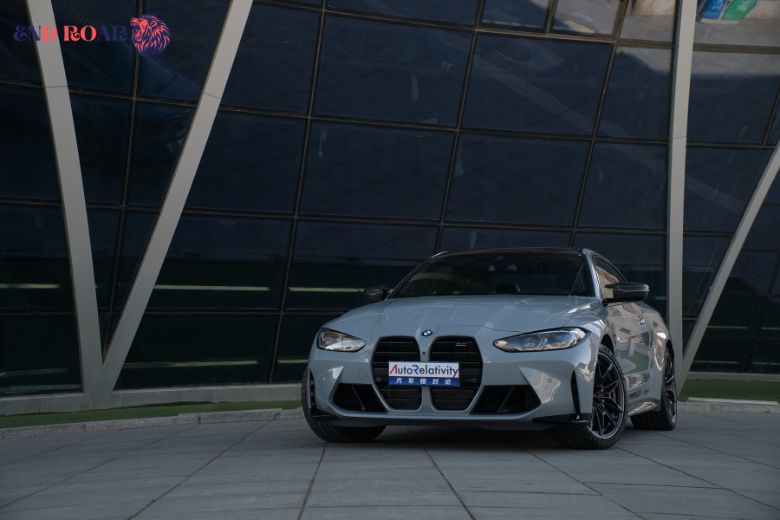Table of Contents
BMW Car Company: A Legacy of Excellence and Innovation
Introduction
The automotive industry has witnessed the rise of numerous car manufacturers over the years, each with its unique identity and contributions. Among these industry giants, BMW stands out as a brand that has consistently redefined luxury, performance, and innovation. This article delves into the fascinating world of the BMW car company, exploring its history, iconic models, cutting-edge technology, and commitment to sustainability.
Evolution of BMW: From Aircraft Engines to Iconic Automobiles
In 1916, BMW (originally known as Bayerische Motoren Werke) was founded as an aircraft engine manufacturer. However, following the Treaty of Versailles after World War I, BMW shifted its focus to producing motorcycles and later expanded into automobile production. This transition marked the beginning of BMW’s journey to becoming a revered car company known for its precision engineering and craftsmanship.
BMW’s Philosophy: The Ultimate Driving Machine
At the core of BMW’s philosophy lies the concept of “The Ultimate Driving Machine.” The brand’s relentless pursuit of performance, handling, and driving pleasure has earned it a reputation among car enthusiasts worldwide. BMW’s focus on creating a harmonious connection between driver and machine has become a hallmark of its vehicles, making each BMW model an exhilarating experience on the road.
The Art of Engineering: BMW’s Innovative Technologies
BMW has been at the forefront of automotive innovation, consistently introducing groundbreaking technologies. From its iconic kidney grille to advanced driver assistance systems, BMW vehicles embody cutting-edge engineering. The integration of lightweight materials, aerodynamics, and precision manufacturing techniques ensures exceptional performance, fuel efficiency, and safety across the BMW lineup.
Iconic Models: A Legacy of Performance and Style
BMW has produced a remarkable range of iconic models that have left an indelible mark on the automotive industry. From the legendary BMW 3 Series, known for its sporty handling and versatility, to the elegant BMW 7 Series, exemplifying luxury and comfort, each model showcases BMW’s dedication to craftsmanship and driving pleasure. The sleek designs, powerful engines, and advanced technology make BMW cars a symbol of automotive excellence.
Embracing Sustainability: BMW’s Commitment to the Environment
Recognizing the importance of sustainability, BMW has undertaken significant efforts to reduce its environmental impact. The company has embraced electric mobility with its BMW I sub-brand, which includes electric and plug-in hybrid vehicles. BMW’s commitment to sustainability extends to its production processes, with initiatives focused on renewable energy sources and reducing carbon emissions throughout the supply chain.
The Future of BMW: Electric Mobility and Autonomous Driving
As the automotive industry embraces the future of mobility, BMW remains at the forefront of innovation. The company has made substantial investments in electric vehicles (EVs) and aims to offer 25 fully electric models by 2023. Additionally, BMW is actively developing autonomous driving technology, envisioning a future where cars can operate autonomously, providing enhanced safety and convenience.
BMW’s Global Impact: A Presence in Markets Worldwide
With its global presence, BMW has established itself as a leader in the luxury car segment across multiple markets. The brand’s strong foothold in regions like North America, Europe, and China has contributed to its success and global recognition. BMW’s commitment to understanding and catering to diverse customer preferences has enabled it to create vehicles that resonate with a wide range of cultures and lifestyles.
Conclusion
BMW’s journey from aircraft engines to iconic automobiles is a testament to its unwavering commitment to excellence, innovation, and driving pleasure. With a rich history, a lineup of iconic models, cutting-edge technology, and a focus on sustainability, BMW continues to shape the future of the automotive industry. As the world embraces electric mobility and autonomous driving, BMW remains poised to lead the way, offering unrivaled luxury, performance, and excitement to drivers around the globe.
FAQs (Frequently Asked Questions)
- Q: Are BMW cars expensive to maintain? A: BMW cars may have higher maintenance costs compared to some other brands due to their advanced technology and precision engineering. However, routine maintenance and adherence to recommended service intervals can help ensure their longevity and performance.
- Q: Does BMW offer electric vehicles? A: Yes, BMW has made significant investments in electric mobility and offers a range of electric and plug-in hybrid vehicles under its BMW I sub-brand, providing eco-friendly alternatives without compromising on performance.
- Q: What is BMW’s most popular model? A: The BMW 3 Series is one of the brand’s most popular and iconic models. Known for its sporty dynamics and versatility, it has garnered a loyal following worldwide.
- Q: Is BMW committed to sustainability? A: Absolutely. BMW is dedicated to sustainability and has implemented various initiatives to reduce its environmental impact, including the development of electric vehicles, renewable energy sources, and carbon emissions reduction throughout its operations.
- Q: What sets BMW apart from other luxury car brands? A: BMW’s commitment to the ultimate driving experience, innovative technologies, and timeless design distinguishes it from other luxury car brands. The brand’s emphasis on performance, craftsmanship, and customer satisfaction has earned it a unique place in the automotive industry.
Tata Motors: Revolutionizing the Automotive Industry
